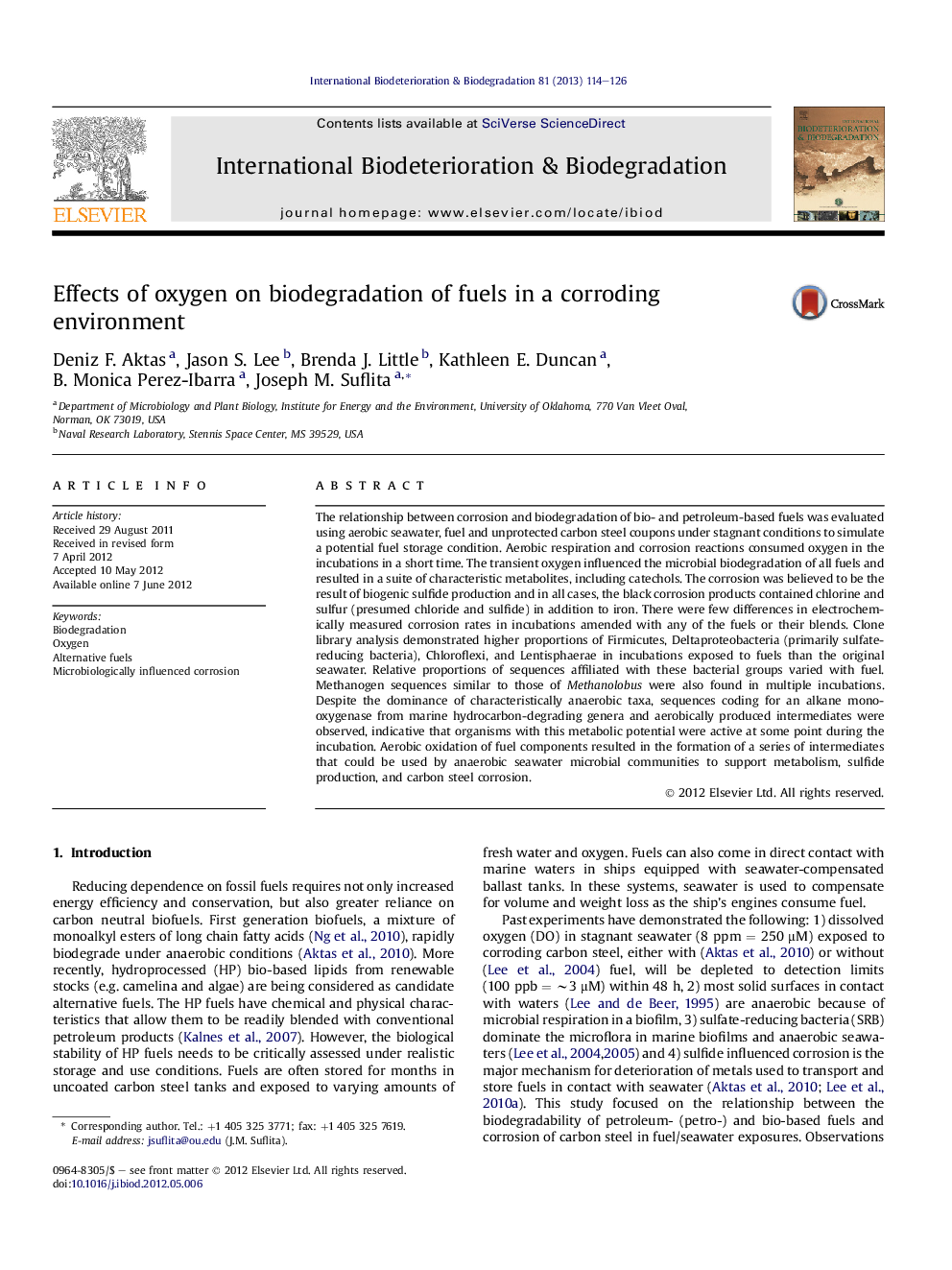| کد مقاله | کد نشریه | سال انتشار | مقاله انگلیسی | نسخه تمام متن |
|---|---|---|---|---|
| 4364950 | 1616334 | 2013 | 13 صفحه PDF | دانلود رایگان |

The relationship between corrosion and biodegradation of bio- and petroleum-based fuels was evaluated using aerobic seawater, fuel and unprotected carbon steel coupons under stagnant conditions to simulate a potential fuel storage condition. Aerobic respiration and corrosion reactions consumed oxygen in the incubations in a short time. The transient oxygen influenced the microbial biodegradation of all fuels and resulted in a suite of characteristic metabolites, including catechols. The corrosion was believed to be the result of biogenic sulfide production and in all cases, the black corrosion products contained chlorine and sulfur (presumed chloride and sulfide) in addition to iron. There were few differences in electrochemically measured corrosion rates in incubations amended with any of the fuels or their blends. Clone library analysis demonstrated higher proportions of Firmicutes, Deltaproteobacteria (primarily sulfate-reducing bacteria), Chloroflexi, and Lentisphaerae in incubations exposed to fuels than the original seawater. Relative proportions of sequences affiliated with these bacterial groups varied with fuel. Methanogen sequences similar to those of Methanolobus were also found in multiple incubations. Despite the dominance of characteristically anaerobic taxa, sequences coding for an alkane monooxygenase from marine hydrocarbon-degrading genera and aerobically produced intermediates were observed, indicative that organisms with this metabolic potential were active at some point during the incubation. Aerobic oxidation of fuel components resulted in the formation of a series of intermediates that could be used by anaerobic seawater microbial communities to support metabolism, sulfide production, and carbon steel corrosion.
► The inherent susceptibility of hydrocarbons in hydroprocessed biofuels or petro-based fuels to biodegradation processes is fundamentally similar.
► Corrosion rates of hydroprocessed biofuels and traditional fuels were similar.
► The presence of diagnostic metabolites indicated that the incubations were transiently exposed to oxygen.
► Fuel components and/or oxygenated metabolites served as suitable electron donors supporting sulfate reduction-linked biocorrosion.
Journal: International Biodeterioration & Biodegradation - Volume 81, July 2013, Pages 114–126